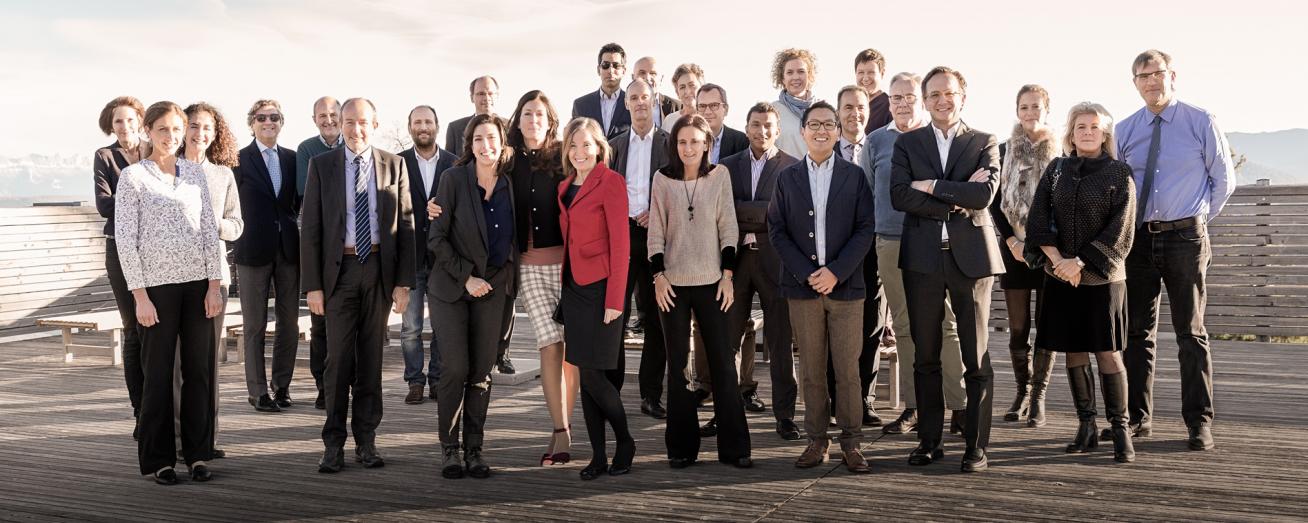The Dr. Schär Institute supports the organization of regular expert meetings as a platform for international independent scientists and healthcare professionals to debate and reach consensus on the current state of research in the field of non-celiac gluten sensitivity (NCGS).
Consensus Conference, London 2011
More information
February 11, 2011 could be considered a historic milestone as far as gluten-related disorders are concerned. A team of world experts on these disorders met to clarify an issue that- up to now- is still generating confusion. During the First Consensus Conference on Gluten Sensitivity the history of celiac disease, dating back 30 years, has been reviewed to define this new entity: gluten sensitivity. The world experts on gluten-related disorders have certified, based on the published scientific evidence, the existence of gluten sensitivity.During the two-day conference, the panel of experts reviewed the existing scientific knowledge. This has allowed them to provide a list of clinical and research priorities. Based on this work we now have a useful map responding to many of the unanswered questions in this field. Furthermore, there are now clear diagnostic and therapeutic criteria for gluten sensitivity. The algorithm below can be used to differentiate the three main categories where gluten reaction is preponderant.
Expert Meeting, Munich 2012
More information
Following on from the first Consensus Conference held in London in 2011, the second International Expert Meeting on Gluten Sensitivity was held in Munich on December 1-2, 2012. Thirty scientists and medical experts from the USA, England, Italy, Germany, France, Spain, Austria, Argentina, Slovenia and the Netherlands spent the weekend discussing the most recent findings in the area of GS.
Some of the questions which came up during the conference were: What is the best definition and nomenclature for GS? What is already known about GS? Which factors still need to be investigated? What biomarkers are suitable for diagnosing GS? What connection might there be between irritable bowel syndrome and GS? The panel of experts also discussed ways to distinguish real GS from a placebo effect caused by a switch to a gluten-free diet. The international event was attended by experts such as Prof. Alessio Fasano, Prof. Carlo Catassi, Prof. Detlef Schuppan, Prof. David Sanders, Dr Michael Schumann, Prof. Wolfgang Holtmeier and Dr Anna Sapone.
The latest results have been summarised in interviews with the experts and a short initial report. The full article was published in 2013 within the journal Nutrients and evaluates the major advances and current trends in knowledge about NCGS presented at this meeting, as well as discussing areas where further research is required.
Expert Meeting, Salerno 2014
More information
At the Third International Expert Meeting on Non-Celiac Gluten Sensitivity in Salerno, Italy in October 2014, international healthcare professionals and scientists primarily focused on the diagnosis of gluten/wheat sensitivity. Since there are still no biomarkers with which NCGS can be conclusively diagnosed, standardised dietary procedures are currently the favoured recommended procedure. As part of the expert meeting, a diagnostic guide was developed under the auspices of Prof. Carlo Catassi and Prof. Alessio Fasano. The publication “Diagnosis of Non-Celiac Gluten Sensitivity (NCGS): The Salerno Experts’ Criteria” is the first recommendation that defines a diagnostic protocol model for confirming diagnosis without biomarkers.
New approach to NCGS: Two-phase diagnosis
The outcome of the expert meeting is a NCGS diagnostic protocol consisting of two phases. The first phase involves the unambiguous identification of patients who actually respond to a gluten-free diet. To do this, the patient must first indicate the main symptoms (baseline) and rate them on a scale of one (minor) to ten (major). It is important that the patient follows a diet that contains gluten for at least six weeks before diagnosis. At this point, a gluten-free diet is introduced and the changes recorded for the following six weeks. The response is evaluated individually for each parameter. A typical response is a decrease of at least 30 per cent. Patients who meet the response criteria for at least half of the observation time (more than 30 % reduction in one of the three main symptoms or at least one symptom and no deterioration in any other) are known as responders, i.e. these patients are likely to be affected by NCGS. The second phase is used to confirm the diagnosis. It measures the effect of gluten consumption after a gluten-free diet.
Expert Meeting, Lana 2016
More information
Current scientific data supports the hypothesis that gluten and other wheat ingredients can trigger IBS symptoms. An accurate diagnosis is difficult due to overlapping and the unavailability of IBS / NCGS- specific biomarkers. The aim of this literature research was to present the current data at hand on the complex relation between NCGS and IBS. Since a literature analysis was published on this topic back in October 2014, this round of literature research looked at all published papers from this date onwards, but also included relevant historical studies. The experts at the meeting delivered abstracts on current studies which were also included in the discussion. Based on the data that is currently available, various areas were identified in which significant progress has been made. Researchers concluded that there are two groups of patients that can benefit from a GFD: Patients who state that they suffer from gluten-related symptoms and possibly NCGS and patients with IBS-related symptoms who could have a gluten or wheat-sensitive form of IBS. There are many different diet variations we know of today which could help these patients.
